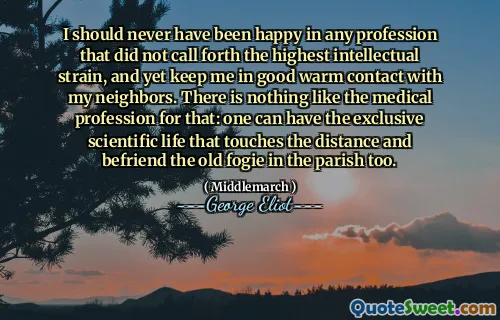Does any one suppose that private prayer is necessarily candid-necessarily goes to the roots of action? Private prayer is inaudible speech, and speech is representative: who can represent himself just as he is, even in his own reflections?
In George Eliot's "Middlemarch," the text explores the complexity and potential insincerity of private prayer. It questions whether such prayer truly reflects an individual's deepest thoughts and motivations or if it merely serves as an inauthentic expression of one's self. The notion that private contemplation can be inherently honest is challenged, suggesting that even our self-reflections are influenced by representational limitations.
The author emphasizes that private prayer, being a silent form of communication, might not reveal one's true nature. This leads to a broader philosophical inquiry into the authenticity of self-representation in thought and speech. Eliot implies that individuals often struggle to present themselves genuinely, even when alone with their innermost feelings, highlighting a disconnect between private intentions and public personas.
